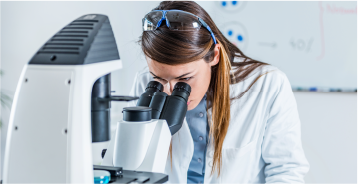Epigenetics and addiction – why quitting is more than just sheer willpower
 Health and Wellness
Health and Wellness
We need to process your personal information for you to interact with this website. We also use Cookies to enhance your experience. Please accept the Website Ts and Cs and Data Protection and Privacy Policy to fully access the website.
What it is, what causes it and how to avoid it!
Did you know that overusing antibiotics could have very dire and potentially deadly implications to you?
“The discovery of antibiotics transformed our world by making previously incurable illnesses treatable and allowing medical procedures like operations and chemotherapy to be performed safely. Millions of lives have been saved and our well-being radically improved. But our time with these drugs is running out. Antibiotics have been used so extensively that many are starting to lose their ability to defeat bacteria”, according to the Global Antibiotic Research and Development Partnership (GARDP).
The World Health Organization (WHO) has noted that, antibiotic resistance is rising to dangerously high levels in all parts of the world as new resistance mechanisms are emerging and spreading globally. It has been estimated that by 2050, 10 million worldwide deaths could result from antibiotic resistance, that’s four times more deaths than from COVID-19 in the first year of the pandemic.
An article by scholars of the University of Cape Town labels antibiotic resistance as ‘A Faceless Pandemic’.
What is antibiotic resistance and what causes it?
Antibiotics are used to treat bacterial infections. Antibiotic resistance occurs when bacteria change in response to medicines and develop the ability to defeat the medication. While antibiotic resistance occurs naturally, the overuse and misuse of antibiotics accelerates the process.
The rapid increase in antibiotic-resistant bacteria in South Africa and across the globe is driven by the misuse and overuse of antibiotics in humans and food-producing animals.
Antibiotic resistance occurs when micro-organisms such as bacteria, viruses, fungi and parasites change in ways that render the medications (antimicrobials) used to treat and cure the infections ineffective. In South Africa, this type of drug resistance impacts tuberculosis (TB), HIV, malaria, and fungal infections.
How to avoid antibiotic resistance
It is clear that urgent action is required to combat antibiotic resistance. If not taken seriously we are heading for a post-antibiotic era, in which common infections and minor injuries can once again lead to death.
Now that we have seen just how deadly antibiotic resistance is and how wide a problem it is, let’s look at some ways of protecting ourselves from it. The WHO suggests the following steps prevent and control the spread of antibiotic resistance for individuals:
Reference list
University of Cape Town: https://www.news.uct.ac.za/article/-2021-04-15-antibiotic-resistance-a-faceless-pandemic
Global Antibiotic Research & Development Partnership: https://gardp.org/what-we-do/antibiotic-resistance/
Procalcitonin and Bacterial Infection:https://www.thermofisher.com/procalcitonin/wo/en/home.html?cid=0se_gaw_25052021_DA7MGR
World Health Organization: https://www.who.int/news-room/fact-sheets/detail/antibiotic-resistance